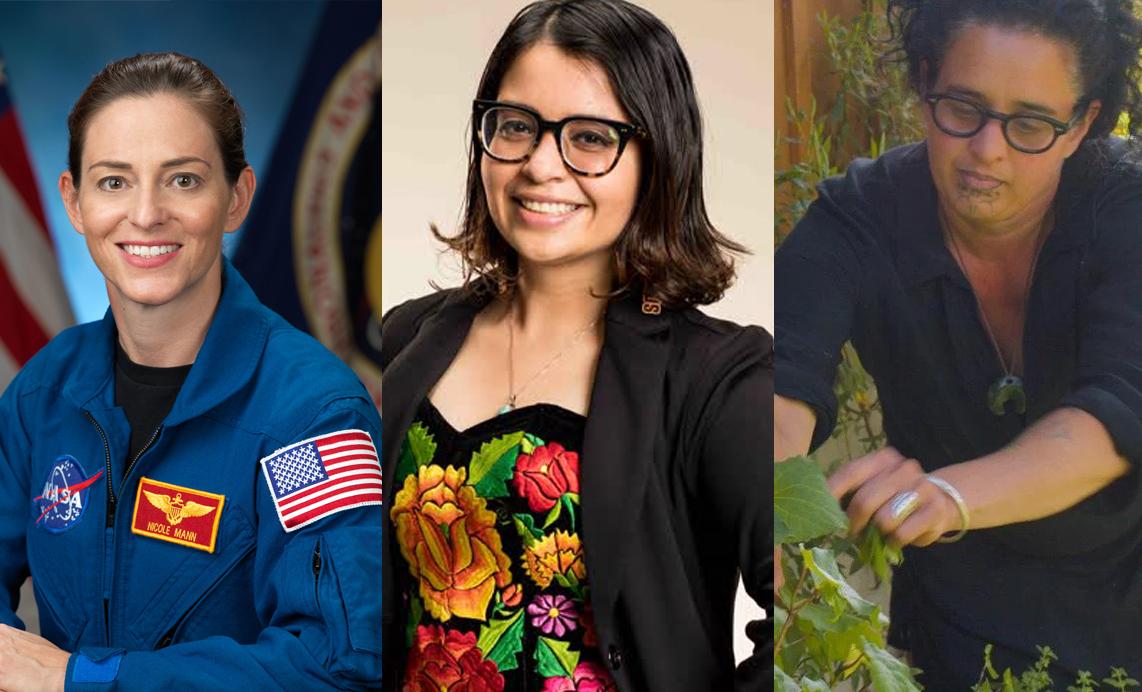
February 11 marks the International Day of Women and Girls in Science, a day to celebrate the contributions that Indigenous women and girls make to the fields of science and technology. It is also a movement that aims to promote the full and equal participation of women and girls in the scientific community. Integral to this movement are Indigenous women who are the holders of generations of Traditional Knowledge and the best stewards of biodiversity. In the context of combating climate change and promoting sustainable development, Indigenous Traditional Knowledge is essential to finding solutions to today's most pressing problems. As former UN Climate Change Executive Secretary, Patricia Espinosa, said, "Indigenous women carry the knowledge of their ancestors while also leading their communities into a resilient future. When Indigenous women engage, climate policies and actions at every level benefit from their holistic, nature-focused knowledge and leadership.” Cultural Survival recognizes and celebrates all Indigenous women scientists and their accomplishments. We share a few incredible Indigenous scientists and women in science below:
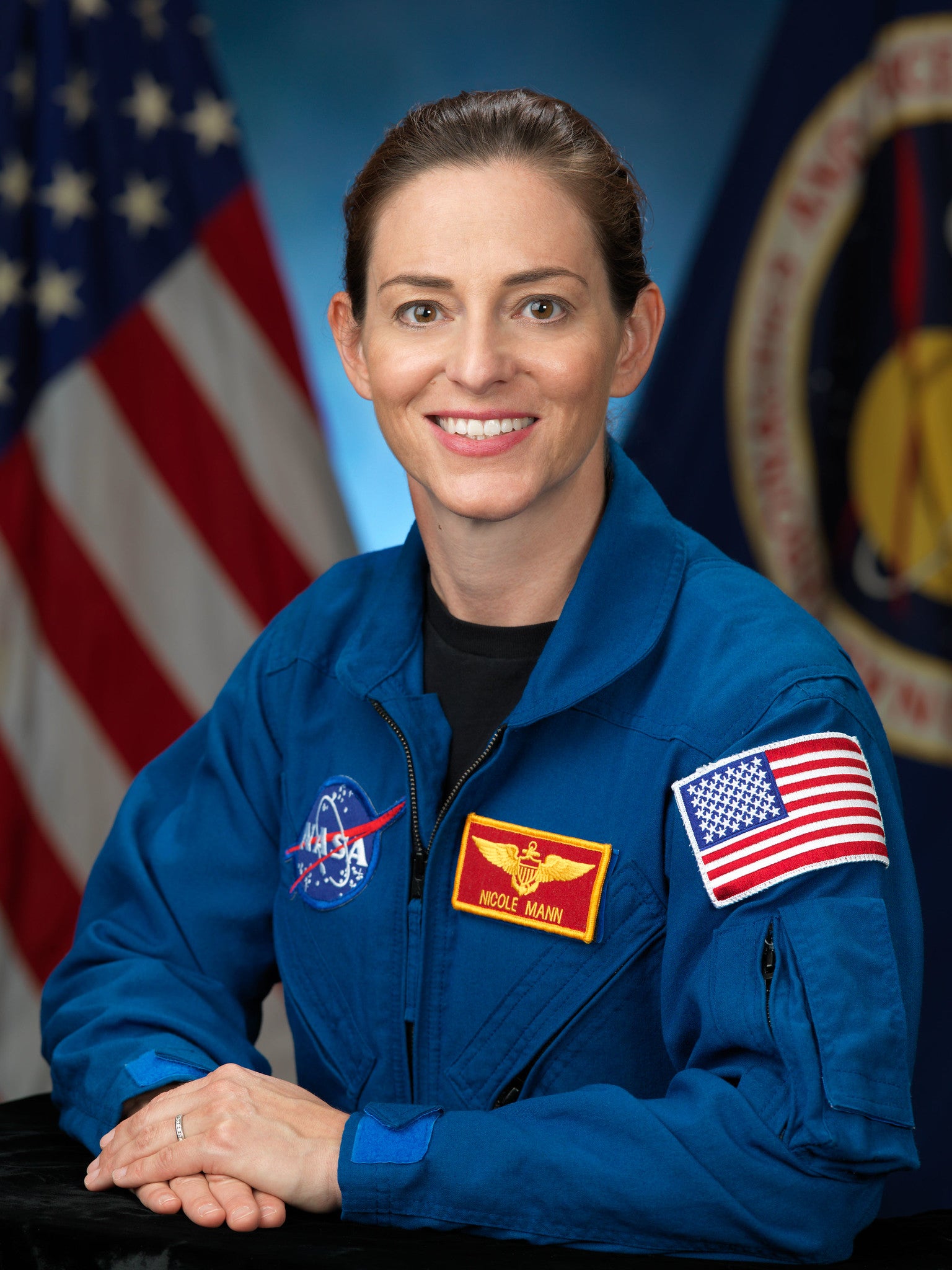
Photo couresty of NASA.
Nicole Aunapu Mann
Nicole Anunapu Mann, a registered member of the Wailacki of the Round Valley Indian Tribes, made history when she became the first Indigenous woman in space. On October 5, 2022, the NASA astronaut from Northern California was launched into space as commander of NASA’s SpaceX Crew-5 mission aboard the SpaceX Crew Dragon spacecraft. She is the first woman to lead a NASA Commercial Crew Program launch and has been living on board an International Space Station conducting over 200 scientific experiments with her team. Lieutenant Colonel Mann hopes that her historic achievement as the first Native American woman in space will inspire future generations. When speaking to Indian Country Today, she said, “it’s very exciting. I think it’s important that we communicate this to our community, so that other Native kids, if they thought maybe that this was not a possibility...realize that some of those barriers that used to be there are really starting to get broken down.” Before departing on her mission, Colonel Mann left a message to the children in her community: “Please know that I carry your hopes and your dreams with me to the International Space Station. And I hope for you that you will be able to achieve your dreams and I pass along the energy for you to persevere in your childhood to do everything that you aspire to do in life.” During her mission, the trailblazing NASA commander has already completed several spacewalks, grown tomatoes in zero gravity, and printed 3-D human cells, among other accomplishments.
After graduating from Stanford University with a master’s in Mechanical Engineering, Mann quickly rose through the ranks of the U.S. Marine Corps. She received six medals for her service and was deployed to both Afghanistan and Iraq. After being selected to join NASA in 2013, Mann contributed to the development of the Orion spacecraft and the Exploration Ground Systems. Her other accomplishments include receiving the NASA 2015 Stephen D. Thorne Safety Award and the 2017 Jerry Yeagley Award for Exceptional Personal Achievement.
Follow Nicole Anunapu Mann on Twitter: https://twitter.com/AstroDuke
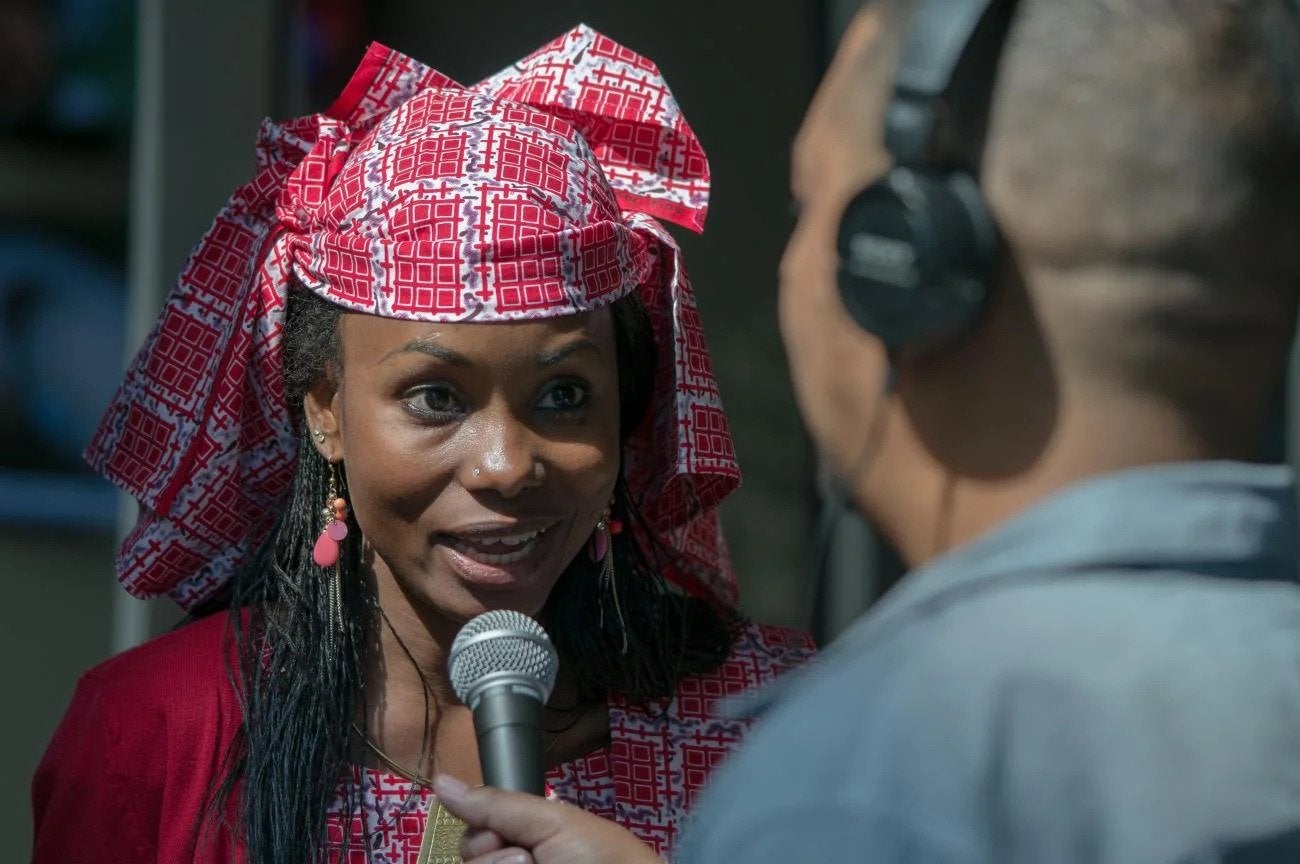
Photo by Cultural Survival.
Hindou Oumarou Ibrahim
Hindou Oumarou Ibrahim, a member of the Mbororo pastoralist Peoples in Chad, is an environmental activist and current President of the Association for Indigenous Women and Peoples of Chad (AFPAT). Oumarou Ibrahim advocates for the support and inclusivity of Indigenous people and their Traditional Knowledge in the global effort to fight the impacts of climate change, particularly among rural communities. She founded the Association for Indigenous Women and Peoples of Chad at the age of 16 and has also served as co-chair of the International Indigenous Peoples Forum on Climate Change. For more than a decade, she has engaged in international policy debates fighting for Indigenous Peoples' rights and environmental protection through the Biodiversity, Climate Change and Desertification Conventions.
In a special issue of the CEESP publication Policy Matters, Oumarou Ibrahim wrote: “Indigenous peoples are often among the first to notice climatic disruptions, to sound the alarm on the disappearance of living species. Living on the frontlines, next to nature, we are witnesses to these changes. On the ice floes of the Arctic, in the tropical forests of Africa, Amazonia, and Asia, in the steppes and savannahs, in the islands of the Pacific, the Indian Ocean, and the Atlantic, industrial companies are waging a war against nature, with local and Indigenous peoples among its first victims. Our Indigenous lands, which hold 80% of the world’s biodiversity, are the target of the greed of industrial agriculture. Our rivers are soiled with plastic and chemical pollution. Our coral reefs are threatened by rising sea levels, warming water, and ocean acidification. Far too often, we are only a few generations away from disappearing.” Her dedication to protecting Indigenous rights and environmental conservation has earned her several honors, including receiving the Pritzker Emerging Environmental Genius Award and being appointed as a UN Sustainable Development Goals Advocate. Time Magazine named her one of 15 women championing climate change action in 2019.
Find out more about Hindou Oumarou Ibrahim’s work by watching this mini documentary.
Follow Hindou Oumarou Ibrahim at:
Twitter: https://twitter.com/hindououmar
Instagram: https://www.instagram.com/hindououmar/
Facebook: https://www.facebook.com/hindou.ibrahim/
Robin Wall Kimmerer
Robin Wall Kimmerer is a Citizen Potawatomi Nation member and esteemed Professor of Environmental Biology at the State University of New York College of Environmental Science and Forestry. She is the acclaimed author of "Braiding Sweetgrass: Indigenous Wisdom, Scientific Knowledge and the Teachings of Plants" (2013) and "Gathering Moss: A Natural and Cultural History of Mosses" (2003). The prestigious John Burroughs Medal for Nature Writing was bestowed to her in 2005, and more recently, she was awarded a MacArthur genius grant that will make her an honorary fellow of the MacArthur Foundation.
As the Founding Director of the Center for Native Peoples and the Environment, Dr. Kimmerer’s mission is to intertwine Traditional Indigenous teachings with contemporary scientific knowledge. Her academic research has been published in numerous scientific papers, exploring themes such as ancestral knowledge, plant teachings, and ecological relations. Key to her work is developing a reciprocal understanding of humanity’s place in the natural world. For example, in “Braiding Sweetgrass” she writes, “In the Western tradition there is a recognized hierarchy of beings, with, of course, the human being on top—the pinnacle of evolution, the darling of Creation—and the plants at the bottom. But in Native ways of knowing, human people are often referred to as “the younger brothers of Creation.” We say that humans have the least experience with how to live and thus the most to learn—we must look to our teachers among the other species for guidance. Their wisdom is apparent in the way that they live. They teach us by example. They’ve been on the earth far longer than we have been, and have had time to figure things out.” Since its publication, "Braiding Sweetgrass" has sold more than 1.4 million copies in print and audio and is a New York Times bestseller. Dr. Kimmerer is currently on a college lecture tour across America. Her topics include Indigenous knowledge, justice for land, the personhood of plants, and healing our relationship with the natural world.
Learn more about Robin Wall Kimmerer’s work by watching this short video produced by the MacArthur Foundation: https://www.macfound.org/fellows/class-of-2022/robin-wall-kimmerer#searchresults
Follow Robin Wall Kimmerer at:
Facebook: https://www.facebook.com/braidingsweetgrass/
Website: https://www.robinwallkimmerer.com/books
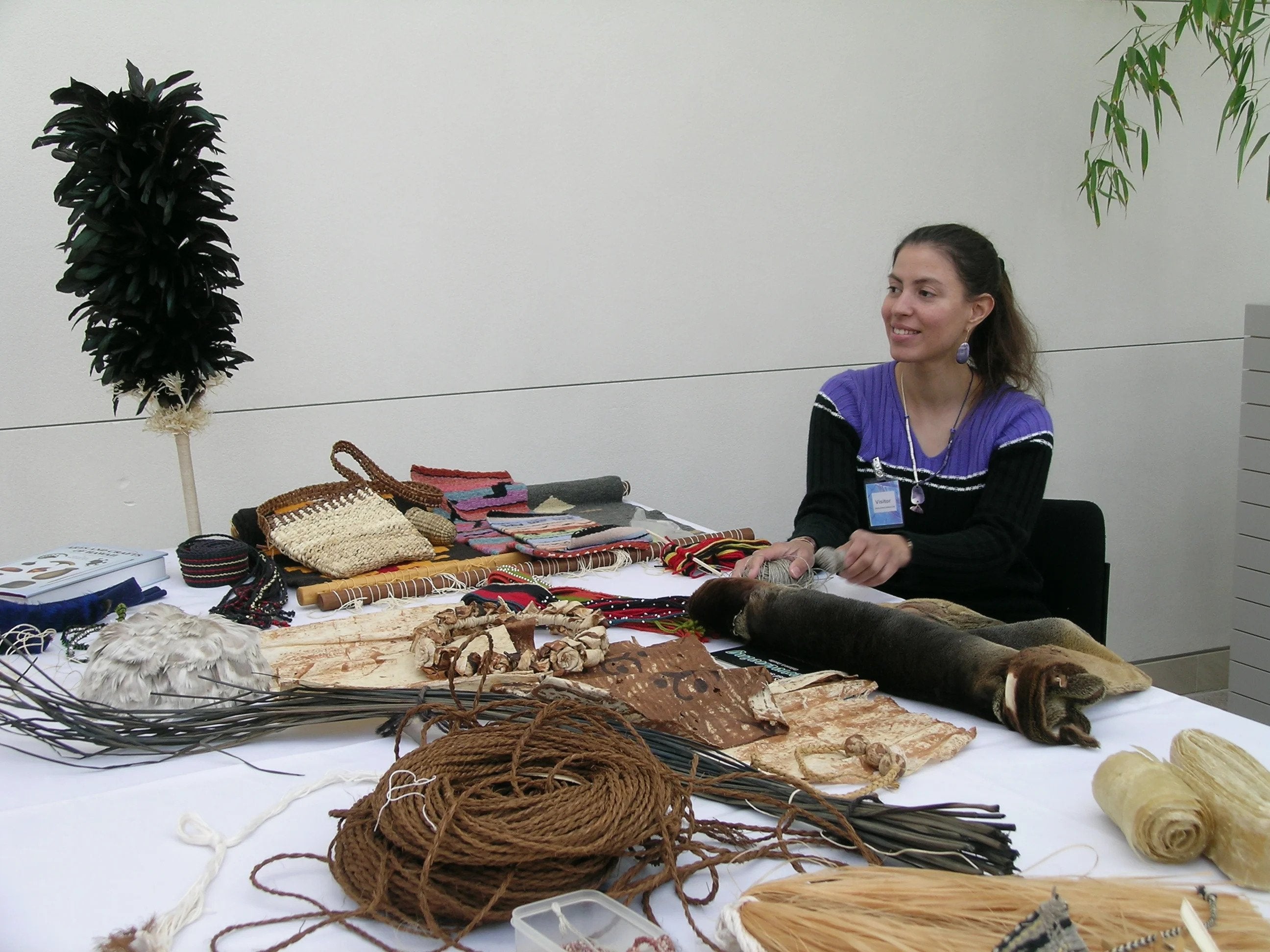
Photo by Cultural Survival.
Elizabeth James Perry
Elizabeth James-Perry, an enrolled Aquinnah Wampanoag Tribe member, holds a degree in marine biology and is the federal Tribal co-lead of the Northeast Regional Ocean Planning Body. She is also an artist and writer focusing on traditional Wampanoag lifeways and contemporary culture. James-Perry's work celebrates her Native roots and has dedicated her life to reviving and honoring Northeastern Woodlands Native Peoples and cultures. When speaking about how Indigenous knowledge can be an asset to Western science, James-Perry said, “Indigenous knowledge can be characterized differently from Western science. It has to do with careful, respectful observation and cooperation with natural systems for a sustainable future. Yes, there are Native economies, but somehow those systems of trade are not allowed to dominate every single other concern. Greed is not a celebrated trait in the Native community. It is a conscious choice to steer away from risky, wasteful attitudes towards nature.”
Learn more about Elizabeth James Perry's work:
https://www.culturalsurvival.org/publications/cultural-survival-quarterly/respecting-sea-conversation-elizabeth-james-perry
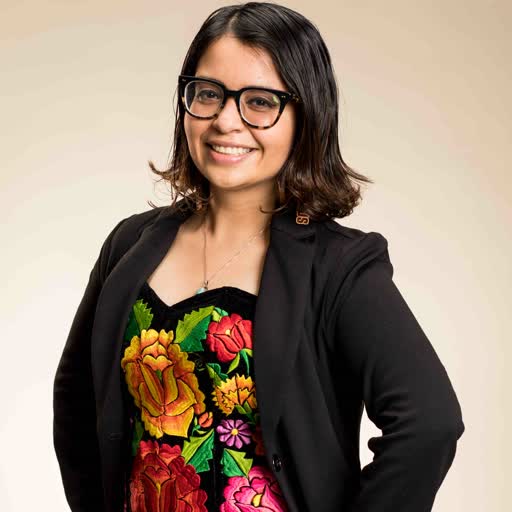
Photo courtesy of Oregon State University.
Jessica Hernandez
Dr. Jessica Hernandez (Binnizá & Maya Ch'orti') is a Pacific Northwest-based Indigenous scholar, author, scientific researcher, and community activist. She has broad academic training in environmental physics and marine sciences. Through her scientific and community activities, she helps promote environmental and climate justice. Hernandez is a critique of Western conservationism and believes that Indigenous lands can be healed by Indigenous science. Indigenous knowledge of nature is often passed down through generations orally. Preserving generations of indigenous knowledge of nature is one of the key themes of her award-winning book, "Fresh Banana Leaves: Healing Indigenous Landscapes through Indigenous Science." Since its publication, Hernandez has gained increasing recognition for her work and was recently named by Forbes as one of the 100 most powerful & influential women of Central America. She is currently working on her second book, "Growing Papaya Trees: Nurturing Indigenous Roots of Climate Displacement & Justice."
Follow Dr. Jessica Hernandez at:
Twitter: https://twitter.com/doctora_nature
Instagram: https://www.instagram.com/doctora_nature/
Website: http://www.jessicabhernandez.com
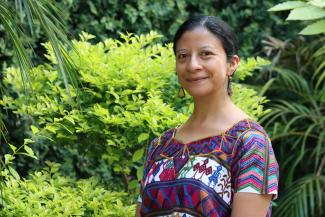
Photo courtesy of Edgar Soto.
Dorotea Gómez Grijalva
Dorotea Gómez Grijalva (Maya K’iche’) is a lesbian feminist, anthropologist, and social worker. She lived a childhood and adolescence marked by the Civil War in Guatemala, a factor that led her to reflect on the effects of armed struggle on the bodies of Indigenous women as a mechanism of oppression. Her main lines of research have focused on violence, exclusion, access to land, political and citizen participation, as well as racial and misogynistic exclusion in rural and urban contexts in Guatemala. She also served in the Presidential Secretariat for Women, the Coordination of the Transition and Gender Justice program, and was the Ombudsman for Women in the Guatemala Human Rights Ombudsman Office. She holds a master’s degree in Social Anthropology from the State University of Campinas, Sao Paulo, Brazil. One of her recent publications is “My Body Is a Political Territory.”
Learn more about Dorotea Gomez Grijalva here.
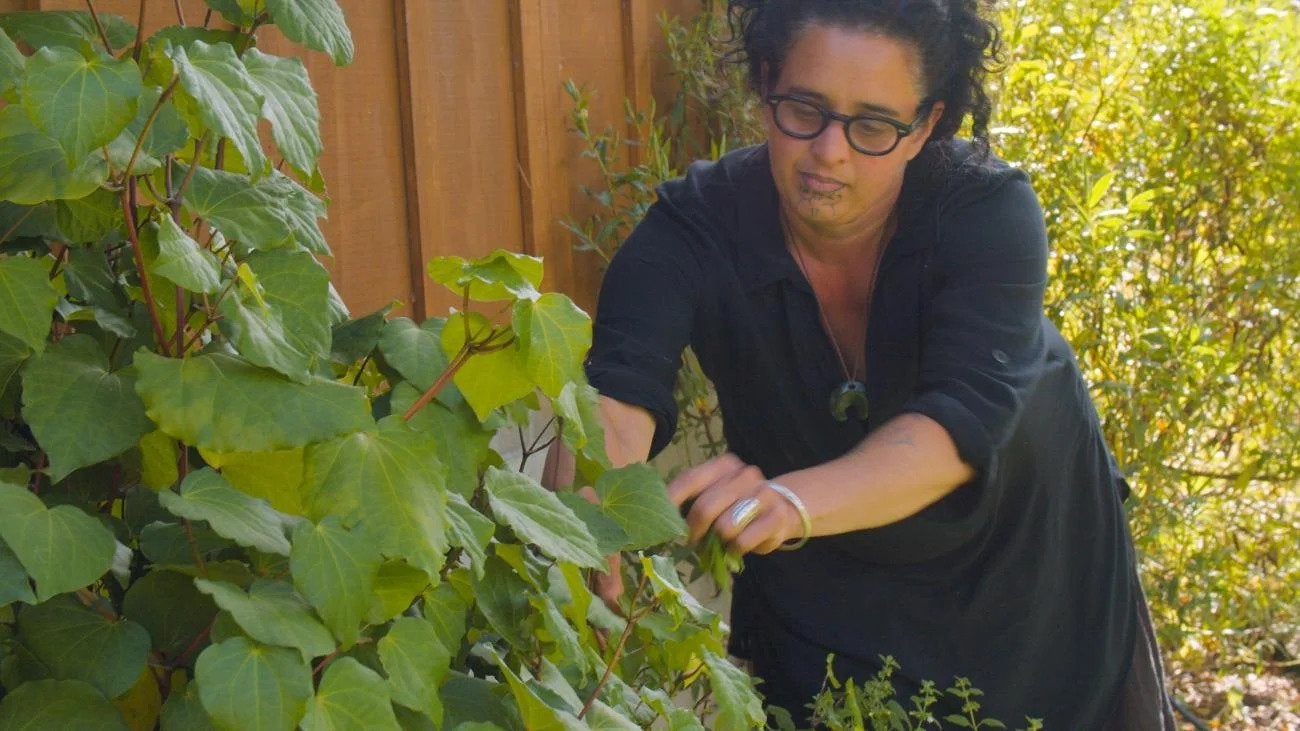
Photo courtesy of Jessica Hutchings.
Jessica Hutchings
Dr. Jessica Hutchings (Ngāi Tahu, Ngāti Huirapa, Gujarat)is a decolonizing researcher in the areas of Māori food sovereignty, food security, cultural and intellectual property rights, and the restoration of the environment through the restoration of Indigenous rights in Aotearoa (New Zealand). She is actively involved with Te Waka Kai Ora (the National Māori Organics Authority) as a grower and a lead researcher to develop a tikanga-based Indigenous verification and validation system for food and agriculture called Hua Parakore. She is a founding trustee of Papawhakaritorito Charitable Trust, whose founding purpose is to deliver education, research, and practice that uplifts Māori food sovereignty and the Hua Parakore.
You can learn more about Jessica Hutchings' work here.
Website: https://jessicahutchings.org
Mariah Gladstone
Mariah Gladstone (Blackfeet, Cherokee) is an activist for Indigenous Peoples’ rights and founder of Indigikitchen. After graduating from Columbia University with a degree in Environmental Engineering, Gladstone devoted her time and energy to promoting traditional Indigenous dishes and ingredients. She encourages people to Indigenize their diets to help revitalize and preserve the cultural richness of pre-contact Native American foodways. In 2017, she delivered a TedX talk titled "Healing from trauma through traditional foodways," in which she discussed the goals of Indigikitchen and the link between a healthy diet and environmental stewardship. After completing her master’s degree at the State University of New York’s College of Environmental Science and Forestry, Gladstone was recognized as a Culture of Health Leader through the Robert Wood Johnson Foundation. She was also selected by the First Nations Development Institute as a Luce Indigenous Knowledge Fellow and named as a Champion for Change by the Centre for Native American Youth.
Follow Mariah Gladstone at:
Instagram: https://www.instagram.com/mariahgladstone/?hl=en
Twitter: https://twitter.com/mariahgladstone?lang=en
PennElys Droz
Dr. PennElys Droz (Anishinaabe/Wyandot) is a founding Board member and Active Director of Sustainable Nations, a Native-led organization providing culturally based training, development, and consulting in renewable energy, natural/traditional building, and ecological wastewater treatment. Droz is also Program Officer at NDN Collective where she directs the planning, execution and evaluation of the NDN Fellowship & Prize. She has worked in the Indigenous environmental field for close to two decades and is also an author of works on Indigenous engineering methodologies for resilient, culturally powerful nation-building. Droz has over two decades of experience in the Indigenous environmental and regenerative Nation building movements to re-develop ecologically, culturally, and economically thriving and resilient Native Nations. She holds a bachelor’s degree in Environmental Science and Technology and a master’s degree in Environmental Resource Engineering from Humboldt State University, and a Ph.D. in Biocultural Engineering Design, American Indian Studies from the University of Arizona.
Learn more about PennElys Droz’s work here.
Follow PennElys Droz at https://www.facebook.com/pennelys.droz/
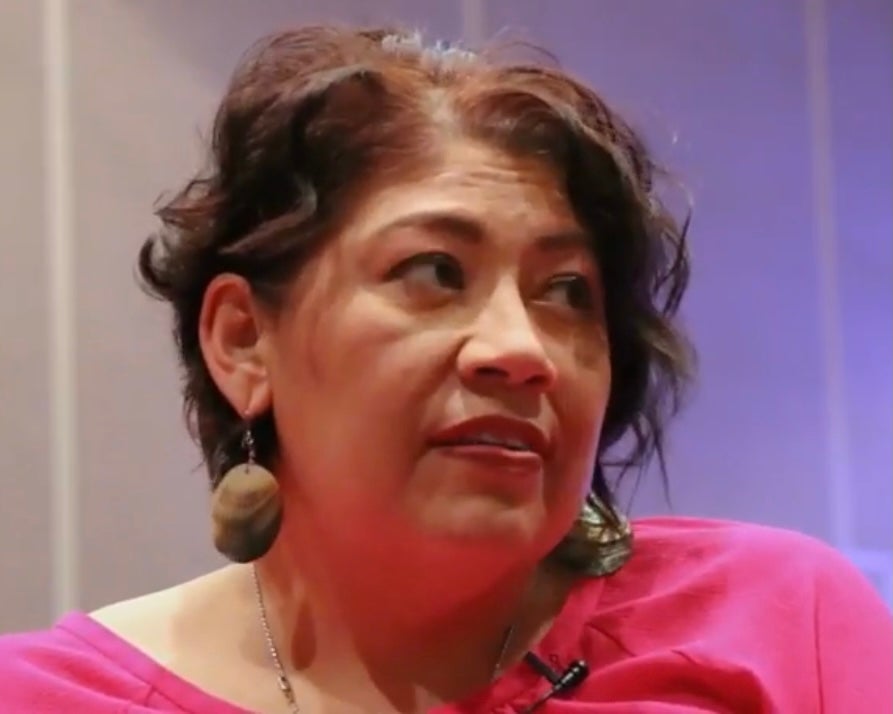
Photo couresty of Wikicommons.
Kim TallBear
Dr. Kim TallBear (Cheyenne & Arapaho), citizen of Sisseton-Wahpeton Oyate, is a Professor in the faculty of Native studies at the University of Alberta. She is a prominent public thinker who frequently comments on issues relating to Indigenous Peoples, sexuality, science, and the environment in both academic and popular media sources throughout the world. At the University of Alberta, Tallbear is currently developing a research and training program that is centered on how Indigenous Peoples interact with science and technology and how those disciplines and initiatives support Indigenous sovereignty. In 2016, the Canadian government awarded her a Tier II Canada Research Chair post in Indigenous Peoples, Technoscience, and Environment. Tallbear has also provided genomics and Indigenous Peoples-related advice to the President of the American Society of Human Genetics. In her contributions to public discourse, she has written extensively and given several talks on the subject of how settler-colonialism in the U.S. and Canada influences heterosexuality, monogamy, and private property.
Follow Dr. Kim TallBear at:
Twitter: https://twitter.com/KimTallBear
Website: https://kimtallbear.com/
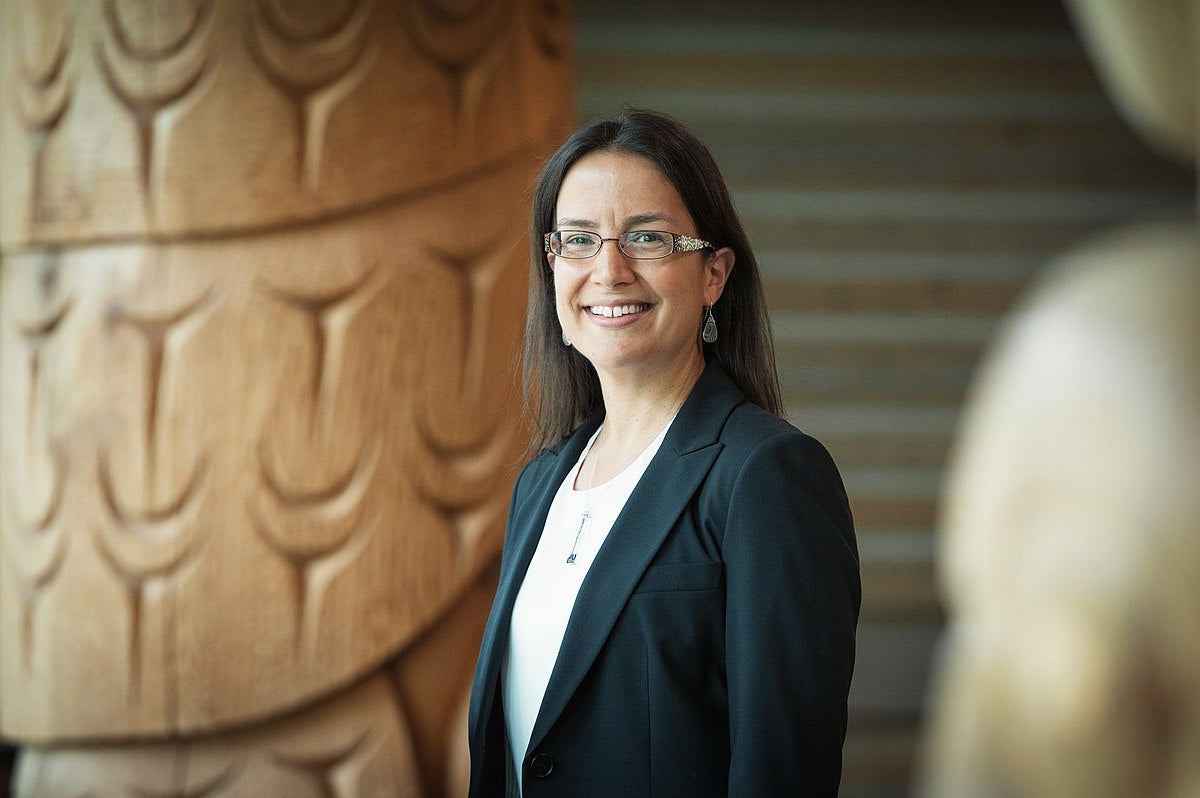
Photo courtesy of Wikicommons.
Dr. Nadine Caron
Nadine Caron (Ojibway) is the first Indigenous woman to graduate from the University of British Columbia's medical school at the top of her class and Canada's first woman First Nations general surgeon. Born in Kamloops, British Columbia, she completed her Bachelor of Science in Kinesiology at Simon Fraser University in 1993, and completed her medical degree at the University of British Columbia Faculty of Medicine. Dr. Caron holds a master's in Public Health from Harvard University. She works as a general endocrine surgeon and is an Associate Professor in the Department of Surgery in the UBC Faculty of Medicine.
Learn more about Dr. Nadine Caron here.
